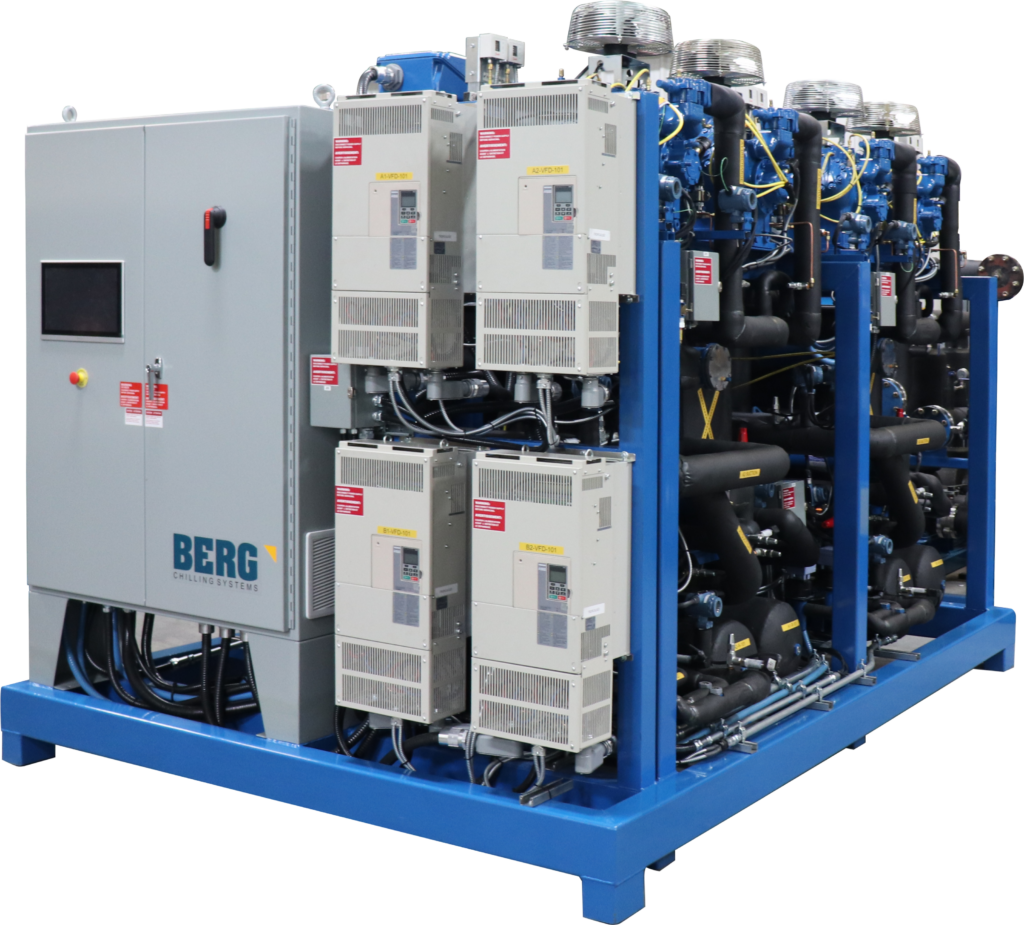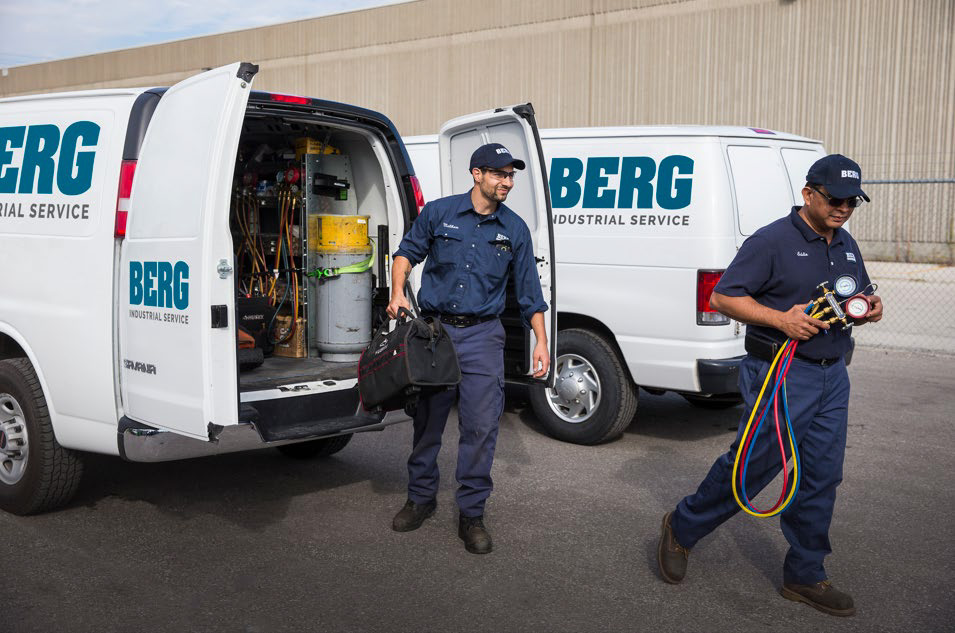Efficient heating and cooling solutions are indispensable for maintaining optimal working conditions and enhancing productivity in industrial settings. Industrial heat pumps, leveraging their ability to harness and transfer thermal energy, emerge as pivotal tools in achieving these objectives. An understanding of the diverse types of industrial heat pumps and their applications is crucial for selecting the most suitable system tailored to specific industrial needs.

Extracting heat from the ambient air, air source heat pumps excel in moderate climates where temperatures seldom drop below freezing. Renowned for their ease of installation and cost-effectiveness, they are favored choices for industrial facilities seeking energy-efficient heating and cooling solutions. Their versatility renders them applicable across various industrial settings, providing both heating and cooling capabilities.
Water source heat pumps utilize the thermal energy from water sources such as rivers, lakes, or underground wells. Water source heat pumps offer heightened efficiencies, particularly for industrial facilities located near abundant water sources, where water temperatures remain relatively constant throughout the year. They ensure consistent and reliable heating and cooling, contributing to sustained operational efficiency.
Ground source heat pumps utilize the heat stored in the ground or groundwater to provide heating, cooling, and hot water for industrial facilities. These pumps offer high efficiency and low environmental impact, making them an attractive option for larger industrial operations seeking sustainable heating and cooling solutions. However, their installation necessitates ground loops or boreholes, making them suitable for facilities with adequate outdoor space.
In industries generating substantial exhaust air volumes, such as manufacturing facilities or food processing plants, exhaust air heat pumps prove invaluable by recovering waste heat and repurposing it for heating purposes. Their ability to capture and recycle waste heat contributes significantly to energy cost reductions and overall facility efficiency enhancements.

It's important to acknowledge that there's no single heat pump solution fits all industrial operations. Each industry, operation, and facility boasts unique requirements and considerations that influence the choice of heat pump. Factors such as geographical location, available resources, operational demands, and budget constraints play crucial roles in determining the most suitable solution. Thorough evaluation and consultation with industry experts like Berg are essential in identifying the optimal heat pump system tailored to specific requirements.
Local climate and environmental factors significantly influence the choice of heat pump. Understanding temperature variations and humidity levels aids in determining the most suitable type, ensuring efficient heating and cooling solutions aligned with regional conditions. In regions with moderate climates and lower humidity, air source heat pumps may be sufficient, offering cost-effective heating and cooling solutions. Conversely, in humid climates or areas with stable water temperatures, such as those near rivers or lakes, are well-suited for water source heat pumps. For consistent heating and cooling needs, particularly in regions with minimal temperature fluctuations, ground source heat pumps harnessing geothermal energy offer high efficiency and reliability.
Access to reliable energy sources like outdoor air, water bodies, or geothermal reservoirs dictates the feasibility of heat pump installation. Evaluating the sustainability and accessibility of energy sources is crucial for making informed decisions. For air source heat pumps, accessibility to outdoor air is essential, ensuring sufficient airflow for optimal performance. Industries situated near water bodies can leverage water source heat pumps, utilizing the thermal energy from rivers, lakes, or wells. Installing ground source heat pumps relies on the feasibility of excavating ground loops, requiring suitable soil conditions and permitting. Evaluating the reliability and sustainability of available energy sources is paramount in making informed decisions.
Space availability and installation requirements are critical considerations in selecting the appropriate heat pump for an industrial facility. Proper planning and site assessments ensure seamless integration of the chosen heat pump system, minimizing challenges and maximizing operational efficiency. Complexities associated with installation, such as excavation for ground loops in ground source heat pumps, necessitate thorough planning and site assessments. By addressing space and installation requirements, businesses can minimize potential challenges and ensure smooth implementation of their chosen heat pump system. Prioritizing efficient use of available space while considering future expansions facilitates seamless integration of the heat pump system into existing infrastructure.
Analyzing upfront and long-term costs associated with each heat pump type facilitates informed decision-making. Assessing initial investment costs, including equipment purchase, installation, and site modifications, and operational expenses, such as energy consumption and maintenance, over the heat pump's lifespan helps forecast long-term costs and efficiency. Considering long-term maintenance requirements, warranty coverage, and expected lifespan aids in evaluating the overall cost-effectiveness of each heat pump option. Balancing the initial investment with long-term savings enables industries to make strategies decisions aligned with budgetary constraints and sustainability objectives.
By meticulously evaluating these factors and collaborating with experienced professionals, industrial facilities can select the most appropriate heat pump type, optimizing heating and cooling operations while maximizing energy efficiency and sustainability.
With over 50 years of experience, Berg specializes in providing custom-engineered industrial heat pumping systems tailored to diverse industrial needs. Our commitment to innovation and quality ensures compliance with the highest industry safety standards. Whether it’s for waste heat recovery or industrial process cooling, our systems are engineered to adapt to various applications, catering to the specific demands of industries. Trust Berg's team of experts for professional assistance in selecting, installing, and maintaining industrial heat pump systems, ensuring efficiency, reliability, and sustainability for your operations.
At Berg, we understand the crucial role heat pumps play in today's industrial landscape. With over 50 years of experience, we have partnered with various sectors to provide custom-engineered industrial heat pumping systems. Our commitment to innovation and quality ensures that our heat pumps are not only tailored to your specific needs but also comply with the highest industry safety standards. Whether it’s for waste heat recovery or industrial process cooling, our systems are engineered to adapt to diverse applications. They are capable of producing hot air, water, steam, and direct material heat, meeting the varied demands of industries.
Contact us today to learn more about our services and how we can help you achieve operational excellence with our state-of-the-art heat pumping systems.